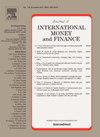了解非常规货币政策在欧洲组合脱碳中的应用
IF 2.8
2区 经济学
Q2 BUSINESS, FINANCE
引用次数: 0
摘要
本研究探讨了欧洲中央银行(ECB)利用非常规货币政策实现资产负债表去碳化的问题,特别关注货币稳定性与环境可持续性之间的内在权衡。我们研究了欧洲央行作为其企业部门购买计划(CSPP)的一部分而购买的绿色资产,与欧洲央行未持有的类似资产相比,如何影响其投资组合的流动性。虽然这些资产符合绿色目标,但其流动性却大大低于非绿色资产。这种差异凸显了欧洲央行政策框架中的一个基本矛盾:对环境可持续性的承诺可能会削弱流动性,进而影响货币政策的整体有效性。我们的研究结果表明,欧洲央行将环境因素纳入其运作的战略虽然成功地支持了更环保的举措,但对维持强劲的流动性水平构成了挑战。这项研究强调,需要创新的金融工具和战略来协调促进环境可持续性和确保货币稳定的双重目标。本文章由计算机程序翻译,如有差异,请以英文原文为准。
Understanding the use of unconventional monetary policy for portfolio decarbonisation in Europe
This study examines the European Central Bank's (ECB) use of unconventional monetary policy to decarbonise its balance sheet, focusing specifically on the inherent trade-offs between monetary stability and environmental sustainability. We investigate how the ECB's green asset purchases, as part of its Corporate Sector Purchase Programme (CSPP), affect the liquidity of its portfolio compared to similar assets not held by the ECB. While these assets align with green objectives, they exhibit significantly lower liquidity than their non-green counterparts. This discrepancy highlights a fundamental tension within the ECB's policy framework: the commitment to environmental sustainability may undermine liquidity and, by extension, the overall effectiveness of monetary policy. Our findings suggest that the ECB's strategy to integrate environmental considerations into its operations, though successful in supporting greener initiatives, poses challenges for maintaining strong liquidity levels. The study underscores the need for innovative financial instruments and strategies to reconcile the dual objectives of promoting environmental sustainability and ensuring monetary stability.
求助全文
通过发布文献求助,成功后即可免费获取论文全文。
去求助
来源期刊

Journal of International Money and Finance
BUSINESS, FINANCE-
CiteScore
4.20
自引率
4.00%
发文量
141
期刊介绍:
Since its launch in 1982, Journal of International Money and Finance has built up a solid reputation as a high quality scholarly journal devoted to theoretical and empirical research in the fields of international monetary economics, international finance, and the rapidly developing overlap area between the two. Researchers in these areas, and financial market professionals too, pay attention to the articles that the journal publishes. Authors published in the journal are in the forefront of scholarly research on exchange rate behaviour, foreign exchange options, international capital markets, international monetary and fiscal policy, international transmission and related questions.
 求助内容:
求助内容: 应助结果提醒方式:
应助结果提醒方式:


